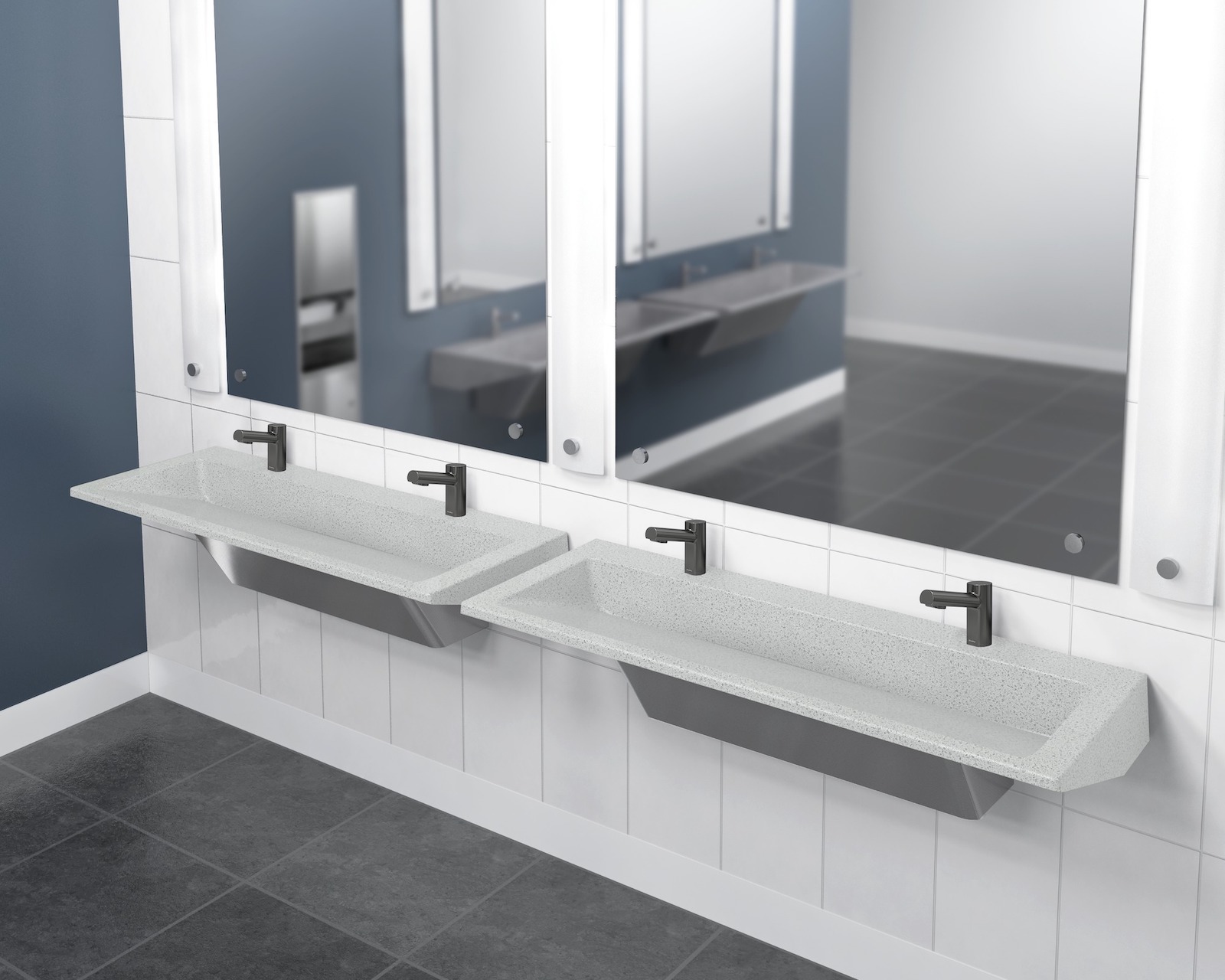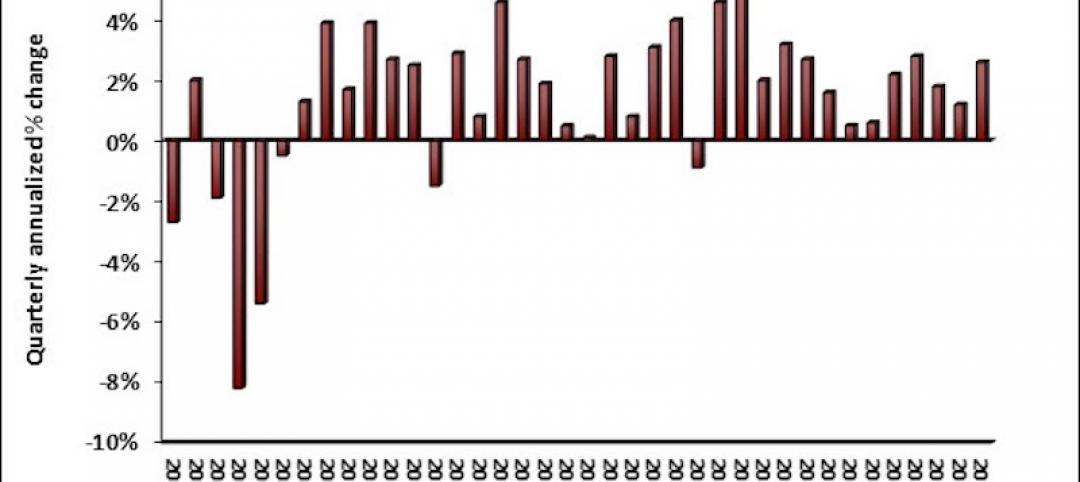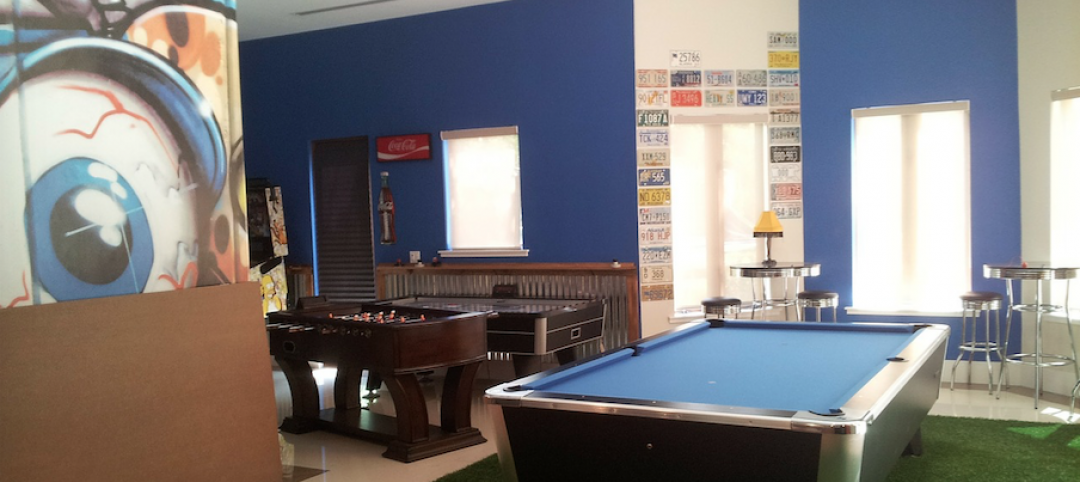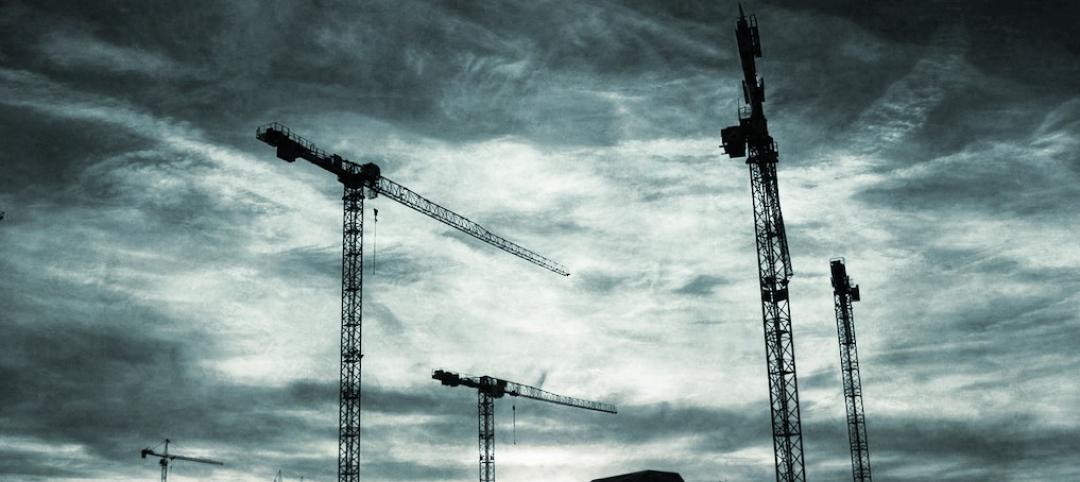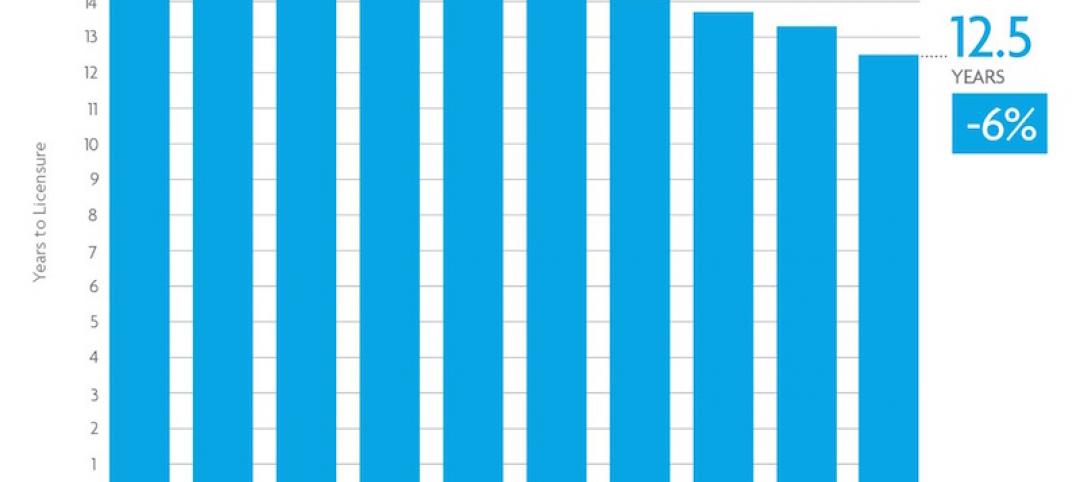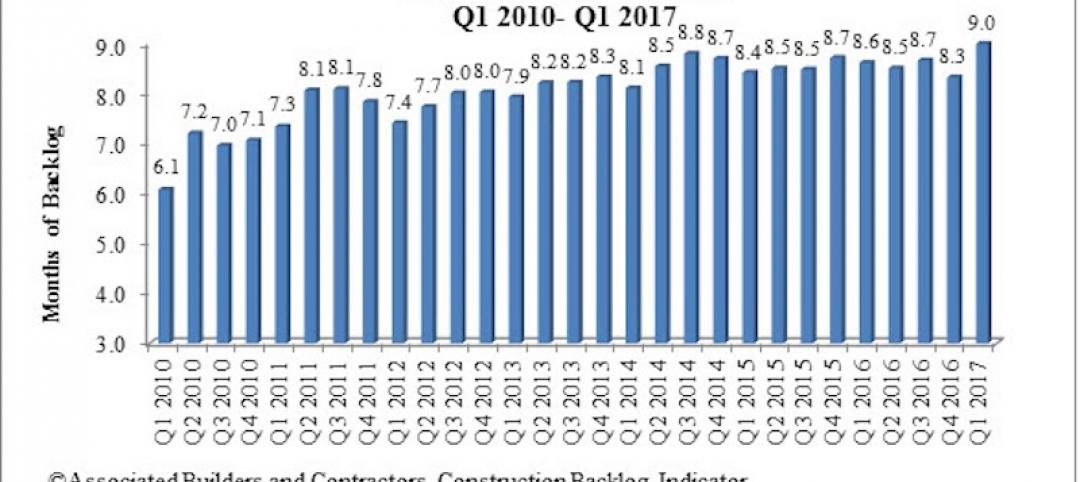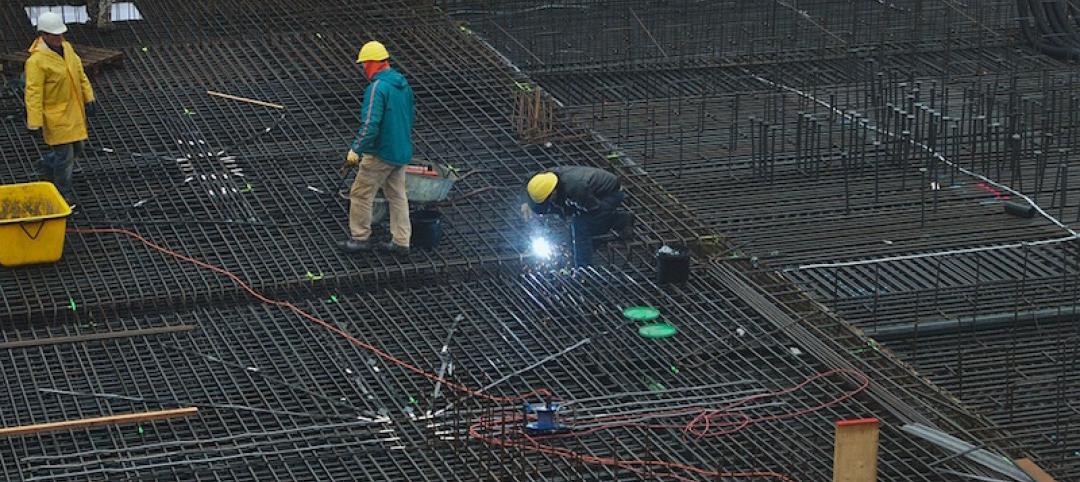Upon entering the third year of the pandemic, Americans are not only more sensitive to germs in public restrooms, they now hold higher standards for the cleanliness, condition and technology used in these shared spaces, according to the annual Healthy Handwashing Survey™ from Bradley Corporation conducted in January.
Despite ongoing Covid outbreaks, most Americans have not been deterred from using public bathrooms. In fact, 41% of Americans report using public restrooms as often as they did before Covid came on the scene. Interestingly, 27% say they use them more now than previously.
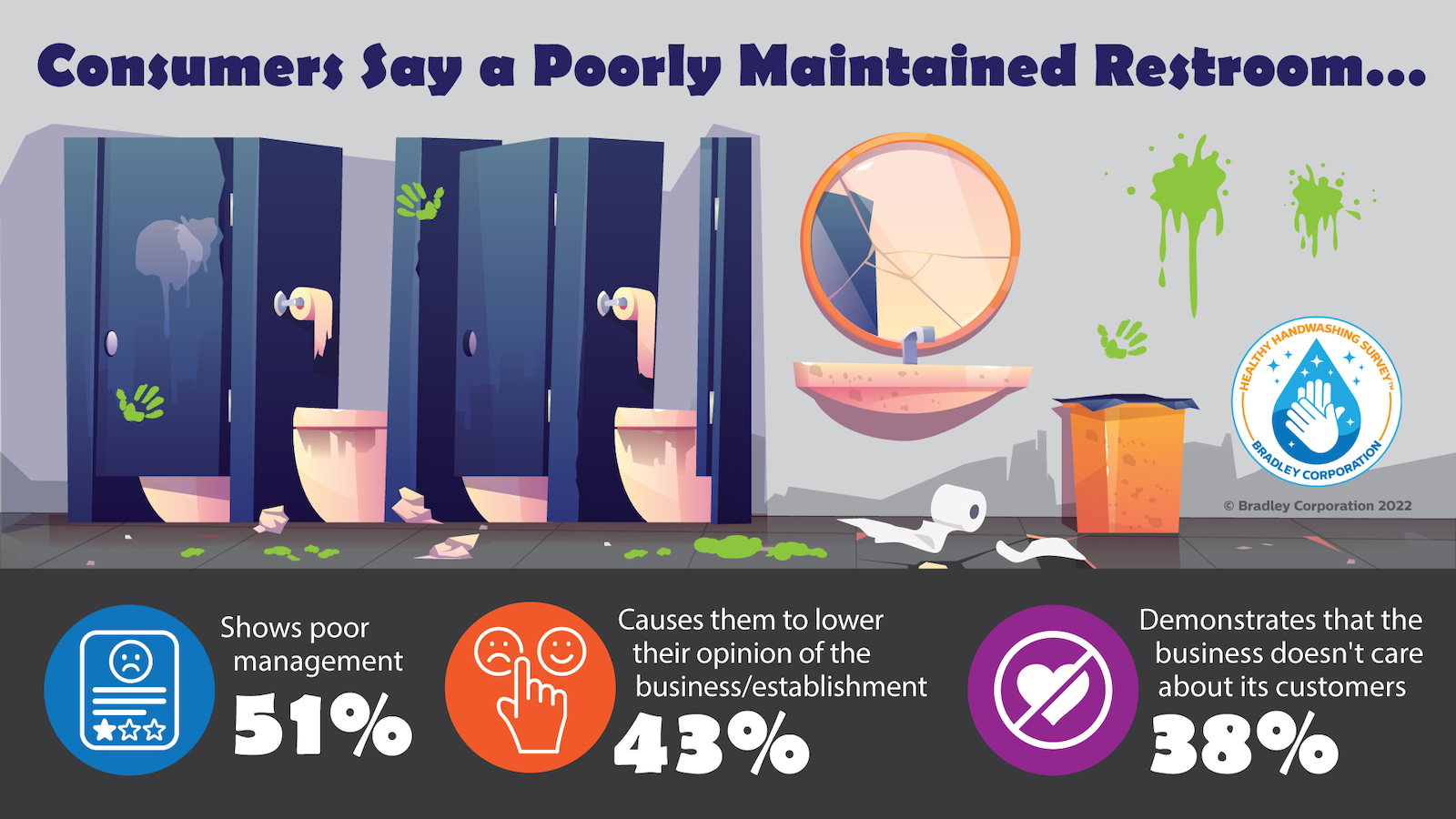
“Thanks to the pandemic, more people are paying closer attention to various elements in public restrooms – how clean they are, how easy they are to navigate without touching surfaces and how they can be improved,” said Jon Dommisse, vice president of marketing and corporate communication for Bradley Corp., a global manufacturer of commercial restroom equipment.
The survey, which has examined the state of U.S. public restrooms and handwashing habits for 13 years, identified key Covid impacts on how Americans view public restrooms – as well as the businesses and establishments that provide them.
#1 Restroom maintenance gets higher marks
A positive side effect of the virus is that half of the population believes public restrooms are now cleaner and in better condition than before Covid. More men (55%) give a thumbs up to the cleanliness of restrooms compared with women (47%).
“Prior to Covid, upwards of 70% of Americans reported having an unpleasant restroom experience,” Dommisse explained. “Evidently, increased cleaning protocols and stocking of supplies is being observed and appreciated by restroom users.”
Further, 79% think a posted and updated cleaning schedule in a restroom is important. “Signage goes a long way in helping to reassure visitors the facility is taking steps to ensure a clean environment and cares about keeping them safe,” he said.
#2 Unclean restrooms tarnish the overall business
Americans increasingly think poorly of a business when they encounter a messy restroom. In 2022, 51% of Americans say an unpleasant public restroom at a business shows poor management, up from 39% in 2021. Respondents also report that encountering neglected restrooms lowers their opinion of the establishment (43%) and shows the business doesn’t care about its customers (38%).
#3 Americans place high value on touchless restrooms
84% of Americans believe it’s important for public restrooms to be equipped with touchless fixtures and 63% say they are more likely to return to a business that offers no-touch capabilities in its restrooms.
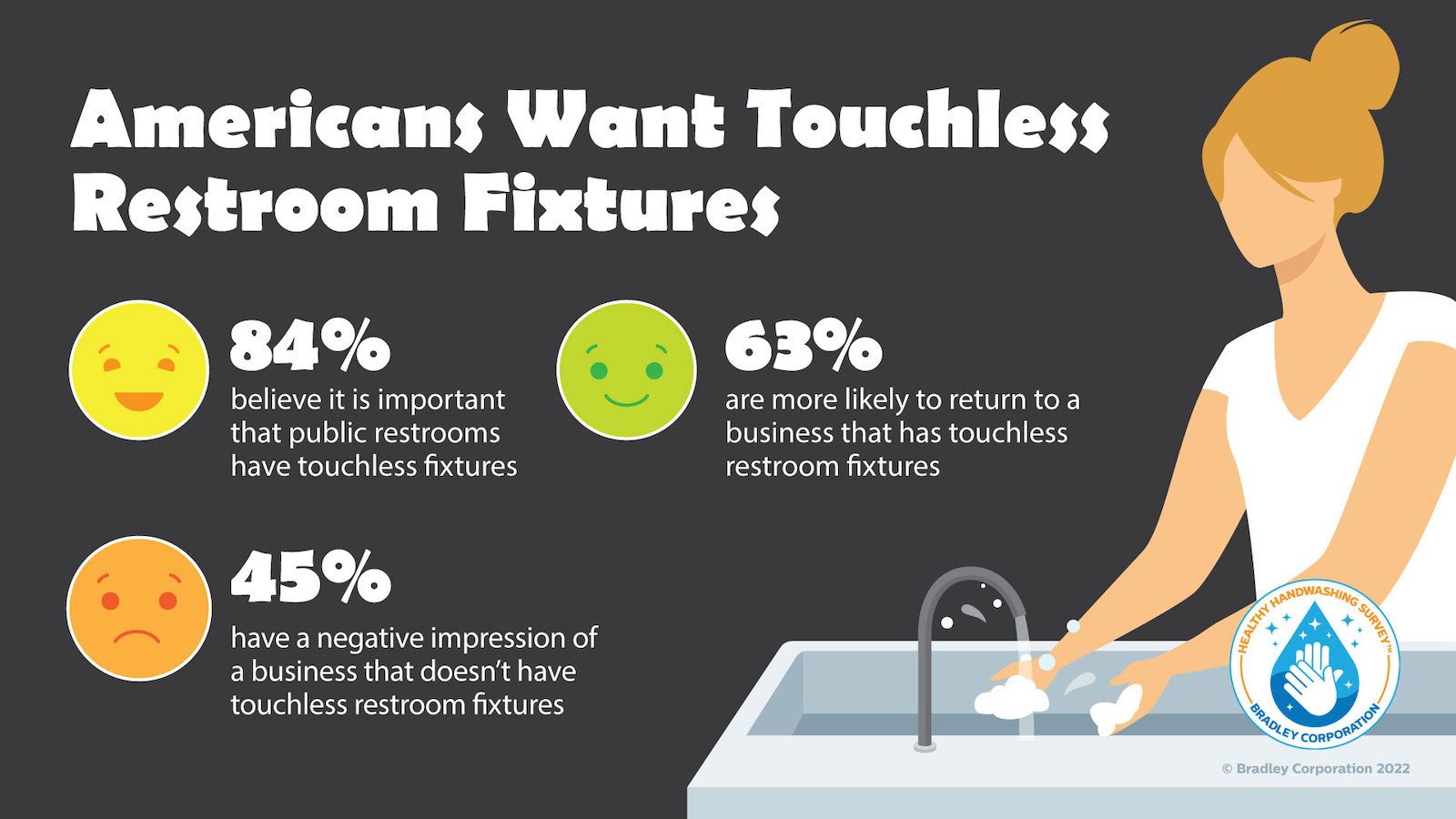
“In fact, Americans view touch-free technology as the number one feature that makes them feel safer from germs in restrooms,” Dommisse said. “Touchless features are also Americans’ most requested improvement in restrooms. More cleaning/restocking takes second place.”
Which touchless restroom features are considered most important? Respondents cite faucets, soap dispensers, flushers and restroom entrance doors as their top four.
#4 Consumers spend more money at a business with pleasant restrooms
Americans are willing to put their money behind restroom cleanliness. Almost 60% say they are likely to spend more cash at a business with clean, well-maintained restrooms. Another 58% say when out running errands they’ll take restroom breaks at a business they know has “good” restrooms.
#5 Coronavirus concerns persist, in general
The majority of Americans continue to be in an elevated state of germ consciousness, triggered by the coronavirus. While 89% of the general population felt more aware of germs in April 2020, that number has fallen to 78%. Northeasterners currently have the highest level of germ concerns (86%) while Midwesterners have the lowest level (72%).
“Certain types of facilities cause more trepidation about coming into contact with germs,” Dommisse added. “Specifically, Americans are most concerned about germs in stores (50%), medical facilities (39%), restaurants (34%) and gas stations (28%).”
The annual Healthy Handwashing Survey from Bradley Corp. queried 1,035 American adults Jan. 10-21, 2022, about their handwashing habits, concerns about the coronavirus and flu and their use of public restrooms. Participants were from around the country and were fairly evenly split between men (46%) and women (54%). For more information, visit www.bradleycorp.com/handwashing.
Related Stories
Market Data | Jul 31, 2017
U.S. economic growth accelerates in second quarter; Nonresidential fixed investment maintains momentum
Nonresidential fixed investment, a category of GDP embodying nonresidential construction activity, expanded at a 5.2% seasonally adjusted annual rate.
Multifamily Housing | Jul 27, 2017
Game rooms and game simulators popular amenities in multifamily developments
The number of developments providing space for physical therapy was somewhat surprising, according to a new survey.
Architects | Jul 25, 2017
AIA 2030 Commitment expands beyond 400 architecture firms
The 2016 Progress Report is now available.
Market Data | Jul 25, 2017
Moderating economic growth triggers construction forecast downgrade for 2017 and 2018
Prospects for the construction industry have weakened with developments over the first half of the year.
Industry Research | Jul 6, 2017
The four types of strategic real estate amenities
From swimming pools to pirate ships, amenities (even crazy ones) aren’t just perks, but assets to enhance performance.
Market Data | Jun 29, 2017
Silicon Valley, Long Island among the priciest places for office fitouts
Coming out on top as the most expensive market to build out an office is Silicon Valley, Calif., with an out-of-pocket cost of $199.22.
Industry Research | Jun 27, 2017
What does the client really want?
In order to deliver superior outcomes to our healthcare clients, we have to know what our clients want.
Industry Research | Jun 26, 2017
Time to earn an architecture license continues to drop
This trend is driven by candidates completing the experience and examination programs concurrently and more quickly.
Industry Research | Jun 22, 2017
ABC's Construction Backlog Indicator rebounds in 2017
The first quarter showed gains in all categories.
Market Data | Jun 21, 2017
Design billings maintain solid footing, strong momentum reflected in project inquiries/design contracts
Balanced growth results in billings gains in all sectors.


